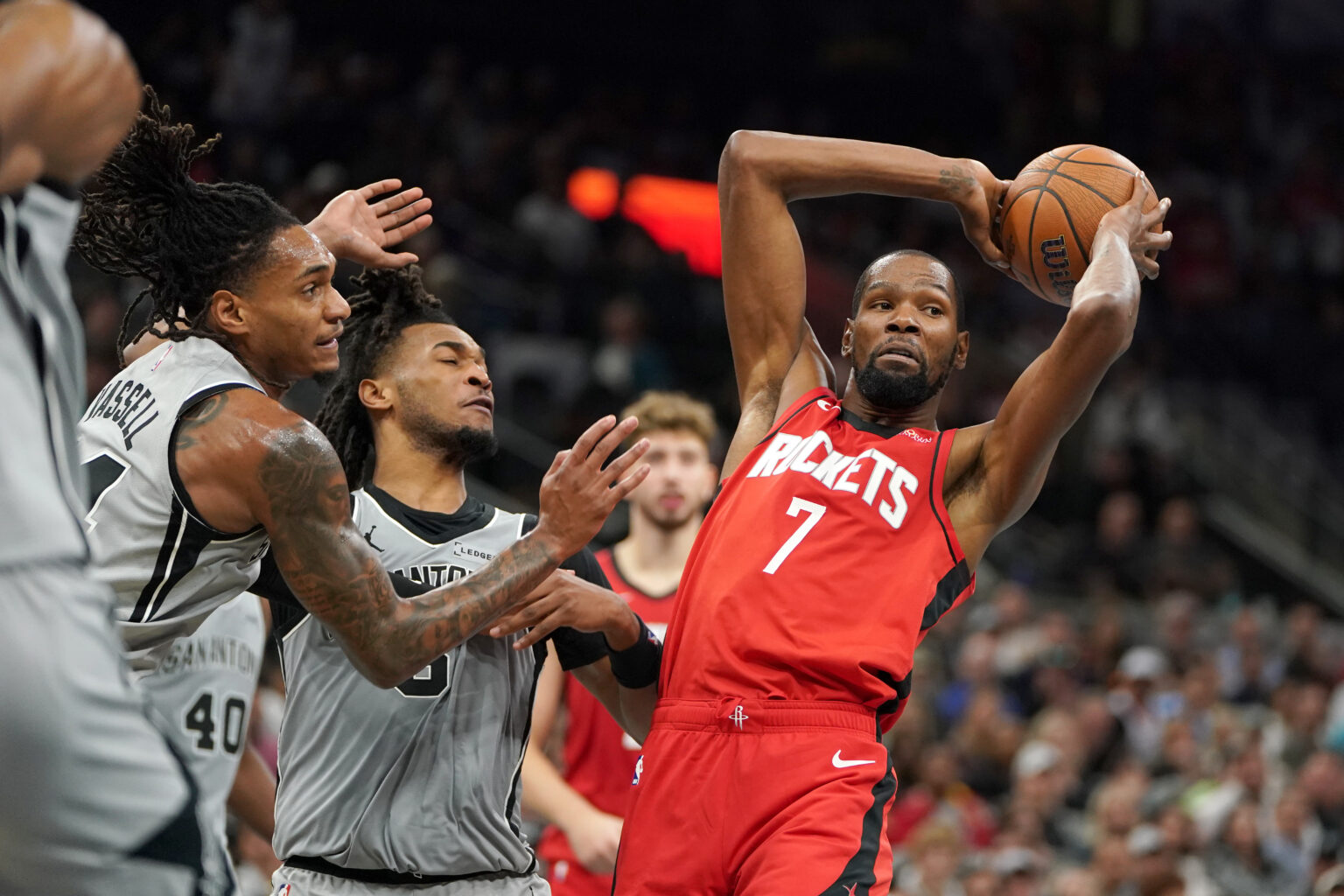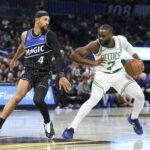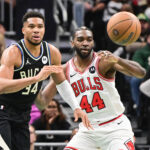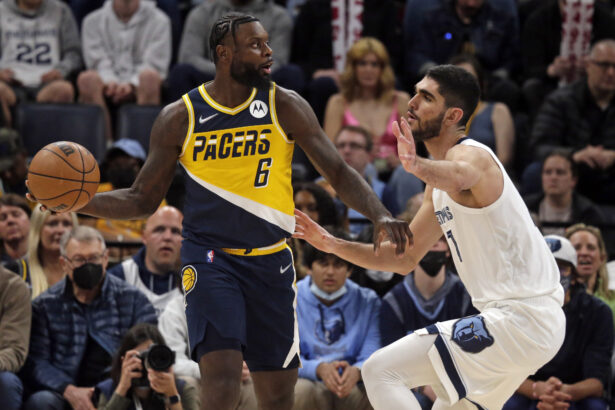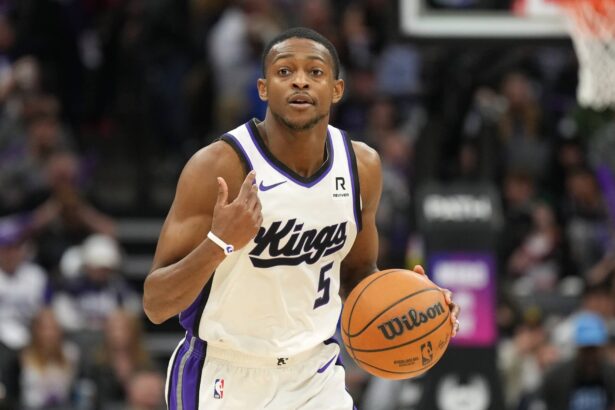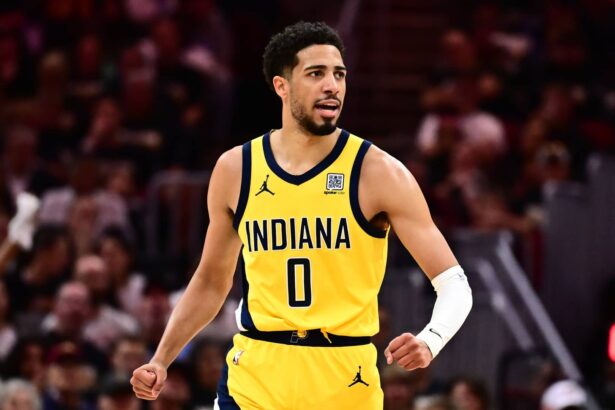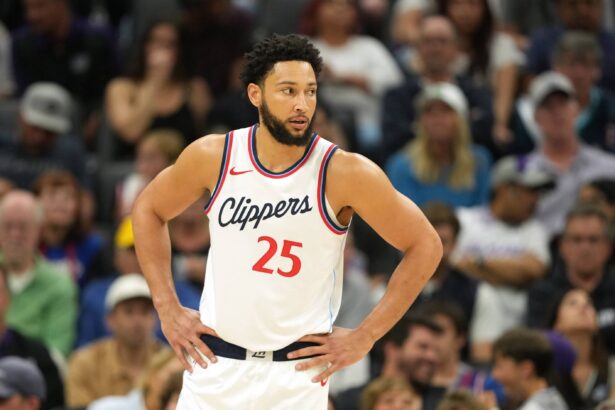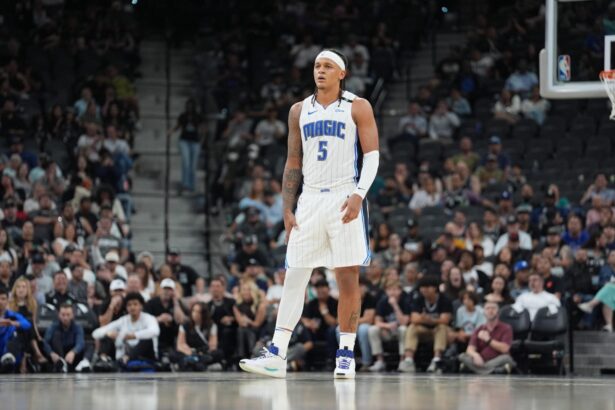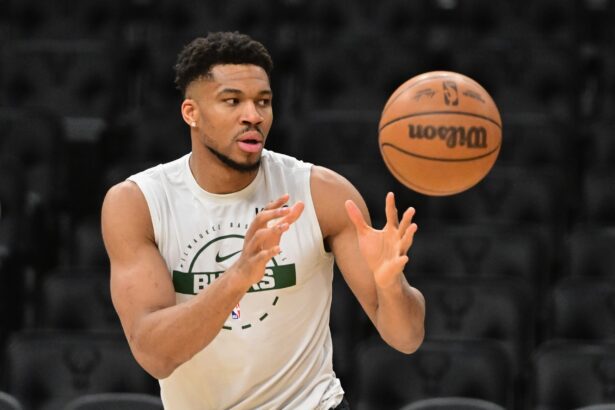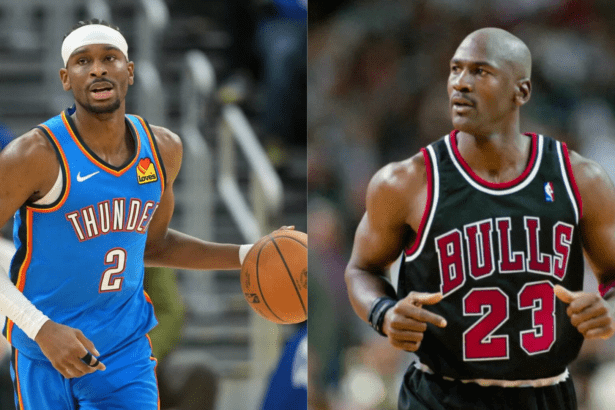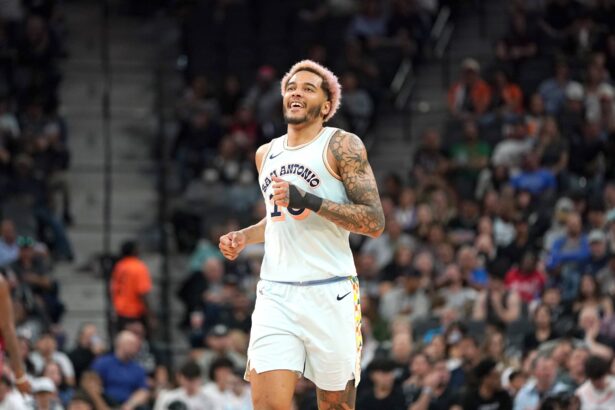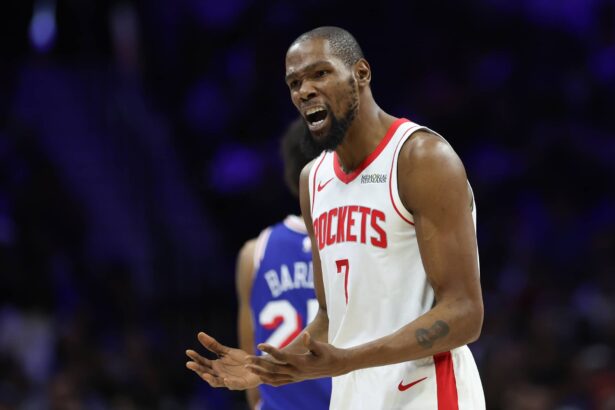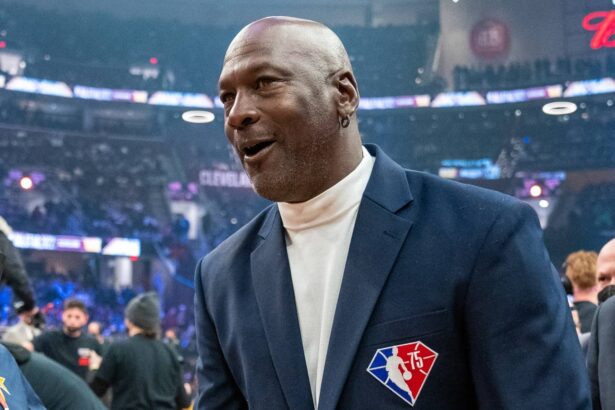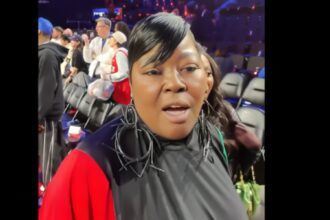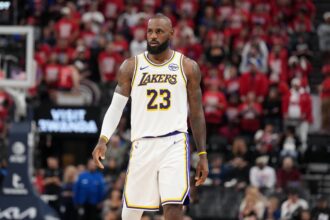The Houston Rockets saw their five-game winning streak end in their NBA Cup opener, falling 121-110 to an opportunistic San Antonio Spurs squad that closed the night with the sharper execution and the steadier stars. Harrison Barnes powered San Antonio with a composed 24-point performance, sealing the win with a pair of late free throws and a breakaway dunk that capped a night defined by Spurs hustle plays and clutch shot-making.
Victor Wembanyama and Julian Champagnie each added 22 points, with Champagnie’s perimeter shooting and fourth-quarter activity, highlighted by a critical offensive rebound save and a loose-ball recovery, swinging the momentum firmly toward San Antonio in the closing minutes. Houston leaned heavily on Kevin Durant (24 points) and Alperen Sengun (22 points), but a costly stretch of turnovers and foul trouble interrupted the Rockets’ rhythm, especially during a 12-0 Spurs burst to close the first half.
Both teams entered at 5-2, but San Antonio’s late-game composure and defensive pressure ultimately carried the first Cup matchup in a competitive, high-energy West Group C opener. Credit should go to the Spurs for their fantastic performance against a sloppy Rockets side, and there are four very important things we learned after this matchup.
1. Houston’s Turnover Problem Completely Undermined The Offense
The single biggest factor in Houston’s loss was its inability to take care of the basketball. The Rockets coughed the ball up 24 times, their second-highest total of the season, and those mistakes became fuel for San Antonio’s momentum swings.
Those turnovers led directly to 33 Spurs points, compared to the Rockets generating “only” 29 points off San Antonio’s 21 giveaways. The Rockets’ starters alone were responsible for 18 turnovers, with Kevin Durant (8), Alperen Sengun (3), Josh Okogie (3), and Amen Thompson (3) all suffering from sloppy ball-handling and forced decisions.
Every major Spurs run centered around Houston’s giveaways. The most damaging sequence came late in the second quarter when the Rockets committed five turnovers in the final two minutes, allowing the Spurs to close the half on a 12-0 run that flipped the scoreboard and the game’s entire tone.
Instead of entering halftime up by two or three possessions, Houston walked into the locker room suddenly trailing after a series of unforced mistakes. Those swing moments became even more costly given the Rockets were shooting the ball efficiently, 45.9% from the field, 48.1% from three, and 90.5% from the line, numbers good enough to win under normal turnover volume.
The late-game execution never stabilized either. Even as Houston trimmed the deficit to single digits in the fourth quarter, turnovers killed any potential comeback rhythm. Durant committed two of his eight turnovers in the final period, including a costly live-ball giveaway that turned into a Julian Champagnie transition three.
Reed Sheppard, who otherwise played well with 16 points on 6-of-10 shooting, also had a key turnover that halted momentum. With the Spurs scoring 24 fast-break or early-clock points sparked directly from miscues, this was a game Houston lost due to their lack of a calm floor general.
2. Spurs’ Deep Shooting Swung the Game
Even though the Rockets shot an excellent 13-of-27 from deep (48.1%), San Antonio used pure volume and timely makes to win the three-point battle. The Spurs knocked down 18-of-45 threes, outscoring Houston by 15 points from beyond the arc, and outshooting them by nearly 20 attempts.
Harrison Barnes (6-of-9), Julian Champagnie (6-of-13), and Devin Vassell (4-of-10) combined for 16 of San Antonio’s 18 threes, repeatedly punishing Houston each time the Rockets tried to make a push. Spurs coach Mitch Johnson clearly made the bet that launching high-volume threes would crack Houston’s defensive rotations, and the strategy worked.
The most defining three-point stretch came in the third quarter. After Sengun (25 points, 9 rebounds, 8 assists) scored back-to-back baskets to pull Houston within three, the Spurs drilled four threes in a five-possession span, two from Vassell, one from Champagnie, and one from Barnes, to stretch the lead back to double digits.
Houston simply couldn’t match that pace defensively, especially when Wembanyama’s presence inside forced the Rockets to help more aggressively at the rim. That interior gravity created clean rotations for San Antonio’s shooters, resulting in 40% shooting on high volume, which is a losing formula for most opponents.
Compounding the issue, Houston only attempted 27 threes compared to San Antonio’s 45, creating a massive math disadvantage. Even with more efficient accuracy, the Rockets lacked enough perimeter attempts to counter the Spurs’ run-heavy approach. The Rockets also struggled to run shooters off the line. San Antonio attempted 26 uncontested threes, hitting 13 of them.
3. Kevin Durant And Alperen Sengun Produced, But Houston Needed More Help
Durant and Sengun were productive, combining for 49 points, 10 rebounds, and 10 assists, but Houston’s stars didn’t receive enough support to overcome San Antonio’s balanced scoring. KD posted 24 points on 8-of-18 shooting, went a perfect 7-of-7 from the line, and hit his only three-point attempt.
However, his 8 turnovers were the most by any Rockets player this season and directly undercut his scoring impact. Sengun, meanwhile, delivered arguably Houston’s best all-around performance with 25 points, 9 rebounds, 8 assists, 1 steal, and 1 block while shooting 45.5% from the field.
The Rockets’ supporting cast struggled to produce consistent scoring outside of Reed Sheppard, who exploded for 16 points off the bench, hitting 4-of-7 threes in his most efficient outing in two weeks. But Houston received only 11 points from Tari Eason (4-of-6), 12 points from Josh Okogie (despite 5 steals), and 14 from Amen Thompson, who shot just 4-of-12.
Jabari Smith Jr. had a quiet five points on 2-of-6 shooting and a team-worst -19, and the center rotation behind Sengun (Adams + Capela) combined for only 3 points on 1-of-4 shooting. Meanwhile, the Spurs had five players score at least 14 points, including three with 22+, and nearly every rotation piece posted a positive plus/minus.
San Antonio’s starting lineup outscored Houston’s starters 97-80, and the Spurs’ bench added several timely momentum plays, even with lower scoring. The Rockets had too many stretches where KD and Sengun had to carry the offense possession by possession.
4. San Antonio’s Ball Movement Exposed Houston’s Defense
San Antonio shredded Houston with its passing game, finishing with 30 assists on 40 made field goals, compared to Houston’s 25 assists on 39 makes. Stephon Castle directed traffic brilliantly with 13 assists, the most he’s recorded in any NBA game, while Wembanyama added 4 assists, Barnes 2, and Vassell another 3.
The Spurs repeatedly turned defense into strong offensive basketball, swinging the ball to the second or third side of the floor until Houston’s defense completely broke down. This was especially visible in the second half, where San Antonio’s ball movement created 26 uncontested shots, including 14 wide-open threes.
Houston’s defense, which had been elite during its five-game winning streak, looked disconnected and reactive instead of proactive. The Rockets allowed 40% shooting from deep, 46% overall, and committed unnecessary fouls that gifted the Spurs 25 free-throw attempts, of which they hit 92%.
Several possessions featured over-help on Wembanyama, even though the Rockets had successfully pushed him off his spots early (Wemby had only 4 points in the first half). Once the Spurs recognized Houston was selling out to keep Wembanyama from getting touches, they weaponized the attention, allowing shooters to relocate into space.
San Antonio also outplayed Houston in the hustle categories. The Spurs collected 15 offensive rebounds, created 15 steals, and blocked four shots without fouling excessively. Houston, by contrast, committed 24 fouls, including a technical and a flagrant, and allowed the Spurs to dictate tempo late.

